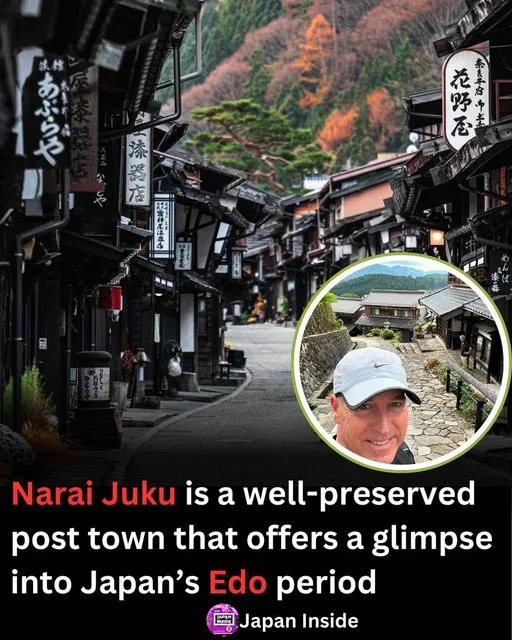Narai Juku: Japan’s Hidden Gem on the Nakasendo Trail
Narai Juku, a picturesque post town along the historic Nakasendo route, offers a rare glimpse into Japan’s Edo period. This hidden gem, often overshadowed by more famous destinations, promises visitors an unforgettable journey filled with stunning architecture, rich culture, and breathtaking natural scenery.

Stroll Through Time: The Historic Streets
The heart of Narai Juku is its 1-kilometer stretch of traditional wooden houses, impeccably preserved to reflect their 17th-century origins.
As you walk along these streets, you’ll feel as if you’ve stepped back in time. The town’s commitment to maintaining its historical integrity means that every building, from the inns to the shops, exudes an authentic Edo-period atmosphere.
Key Highlights:
- Traditional Wooden Houses: Admire the intricate latticework and tiled roofs.
- Local Shops: Explore stores selling handcrafted goods, including pottery, textiles, and the renowned Narai lacquerware.
Immerse in History: The Nakamura Residence
A visit to the Nakamura Residence is a must for history enthusiasts. This former samurai house offers a fascinating insight into the life of the samurai class during the Edo period. The residence features a collection of samurai armor, weapons, and household artifacts, all displayed in rooms that have been meticulously preserved.
Key Highlights:
- Samurai Armor and Weapons: See authentic samurai gear up close.
- Traditional Rooms: Experience the layout and design of a samurai home.
Marvel at the Kiso Ohashi Bridge
One of Narai Juku’s most remarkable features is the Kiso Ohashi Bridge, one of the largest wooden bridges in Japan. Spanning the Kiso River, this impressive structure is not only a feat of engineering but also offers spectacular views of the surrounding landscape.
Key Highlights:
- Scenic Views: Capture beautiful photos from the bridge, especially during sunrise or sunset.
- Architectural Wonder: Learn about the construction techniques that have preserved this bridge for centuries.
Savor Local Delicacies
Narai Juku is also a haven for food lovers. The town is famous for its soba noodles and Narai lacquerware, which often doubles as beautiful serving dishes. Be sure to visit local eateries to taste these regional specialties.
Key Highlights:
- Soba Noodles: Enjoy a bowl of freshly made soba, known for its rich, nutty flavor.
- Narai Lacquerware: Purchase exquisite bowls, trays, and utensils, perfect as souvenirs or gifts.
Hike the Nakasendo Trail to Yabuhara Pass
For those who love the great outdoors, the Nakasendo Trail offers an invigorating hike from Narai Juku to Yabuhara Pass. This trail, once a vital route connecting Tokyo and Kyoto, now provides hikers with breathtaking views of the Kiso Valley and a profound sense of historical adventure.
Key Highlights:
- Scenic Hike: Walk through lush forests and past cascading streams.
- Historical Landmarks: Discover ancient shrines and marker stones along the trail.
Stay in a Traditional Ryokan
To fully immerse yourself in the charm of Narai Juku, consider staying overnight in a traditional ryokan. These inns offer a unique blend of comfort and tradition, with tatami-matted rooms, futon bedding, and communal hot spring baths.
Key Highlights:
- Hot Spring Baths: Relax in soothing onsen waters.
- Kaiseki Meals: Savor multi-course dinners featuring seasonal and regional ingredients.
Journey Worth Taking
Narai Juku is more than just a tourist destination; it’s a portal to Japan’s past. Whether you’re exploring its historic streets, delving into samurai culture, crossing the Kiso Ohashi Bridge, enjoying local cuisine, hiking the Nakasendo Trail, or staying in a ryokan, Narai Juku offers an experience that is both enriching and unforgettable.